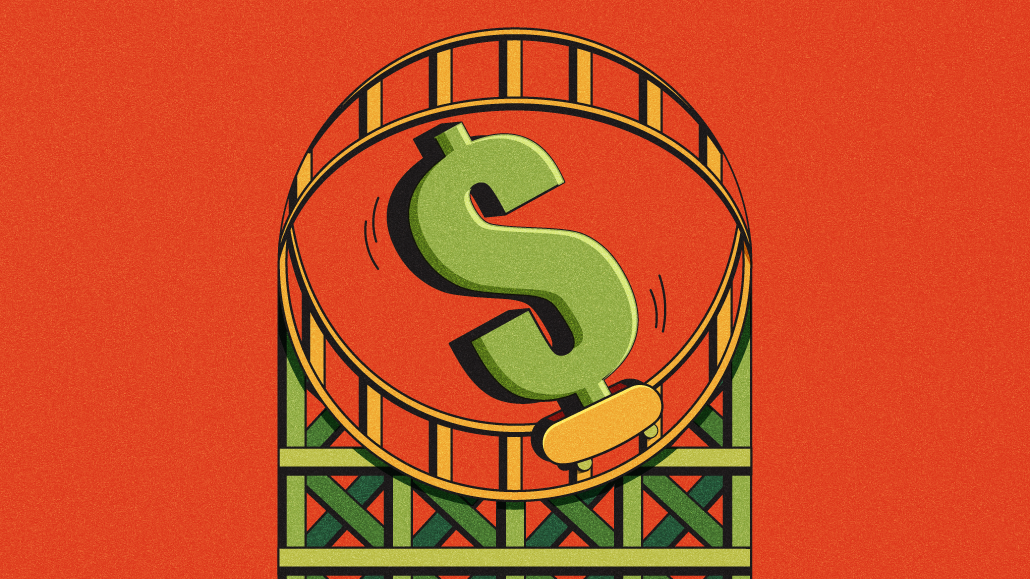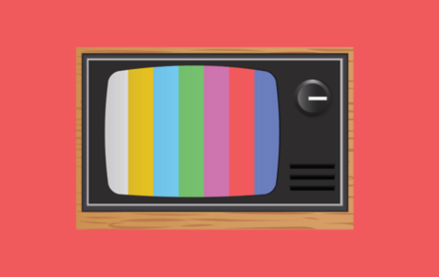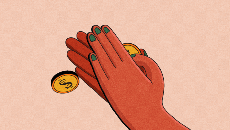As competition stiffens in digital marketing, Orangetheory Fitness reconsiders performance spend

As a Digiday+ member, you were able to access this article early through the Digiday+ Story Preview email. See other exclusives or manage your account.This article was provided as an exclusive preview for Digiday+ members, who were able to access it early. Check out the other features included with Digiday+ to help you stay ahead
It’s been a debate for years: How can performance and brand marketing co-exist to push sales and boost brand awareness or affinity simultaneously? It’s a question Orangetheory Fitness is now asking itself after 14 years in business.
Today’s digital marketing landscape is increasingly more fragmented, making it more difficult for performance-focused marketers like Orangetheory to stand out online. To distinguish itself from the noise, the fitness brand is investing in brand building tactics to better balance its performance and brand marketing spend, according to David Chriswick, Orangetheory’s svp of brand and communications.
“There’s new brands popping up. There’s new concepts trying to earn your attention and your time. And Orangetheory, amongst that pack, is no different,” he said. He later added, “Performance will feed the final [bottom line] in the short term. But at the same time, we need to be sowing the seeds for the future and making sure there’s a healthy pipeline ahead of us.”
For example, this month, Orangetheory Fitness hired comedian Hannah Berner for a comedy event and in-person workout that will also be livestreamed on TikTok. It’s a brand awareness play, Chriswick noted. The campaign will be built out with paid media on Facebook and YouTube, layering in measurement capabilities in addition to organic tactics, like social listening.
The fitness brand has focused on growing its online social presence and has an active TikTok account with more than 14,000 followers. According to the svp, there are plans to make TikTok a bigger part of the brand’s media investment and organic social media efforts. It’s unclear what those investments will look like as Chriswick did not provide further details.
Generally speaking, about 75%, or the bulk of Orangetheory’s media spend, goes to performance marketing, leaving the remaining 25% for brand building, experimentation and the like, per Chriswick. (He did not provide specific media spend figures nor figures for last year for a year-over-year comparison.) Last year, Orangetheory Fitness spent more than $11.8 million on media, according to Vivvix, not including paid social. That figure is slightly higher than the $10.9 spent in 2022.
“We do want to get more scientific about what the right balance is and where we should be placing our bets,” Chriswick said.
In recent years, marketers have emphasized performance marketing over brand marketing, especially with economic headwinds putting marketing budgets under more scrutiny than they had been in the past. But over the last few months, agencies say they’ve seen an uptick in client requests for brand building.
At Fitzco ad agency, clients are increasingly looking for atypical media channels, like experiential marketing or other channels, that can be layered atop a media buy to amplify efforts, build brand awareness while simultaneously allowing for measurement, said Claire Russell, head of media at Fitzco.
“It’s definitely something performance-first brands are going to struggle with,” she said. “You’re seeing clients more and more want creative ways to reach their audiences.”
However, it hasn’t been an easy sell, getting performance-based marketers to buy into brand marketing, which is not as measurable as performance-based marketing.
“It’s difficult because every dollar you trade off of your performance marketing budget, you’re going to lose in brand, in the short-term. It’s just not going to return as much,” Russell added. Meaning, brand marketing isn’t as measurable, attributable or incremental, but it does build a brand’s reputation, allowing it to stand out from the competition, and help retain customers.
Orangetheory Fitness doesn’t have the perfect measurement mix either and remains a performance-forward brand, said Chriswick. “There’s no healthy long-term unless there’s a healthy short-term,” he added, noting the importance of brand marketing and performance marketing working more holistically.
“We are very performance heavy, and we take pride in being able to track and measure, but at the same time not hindering innovation as well,” he said. “Trying new things, even though we might not get the complete picture, is important to us.”
More in Marketing

In the marketing world, anime is following in the footsteps of gaming
As marketers look to take advantage of anime’s entry into the zeitgeist, they might be wise to observe the parallels between the evolution of anime as a marketing channel and the ways brands have learned to better leverage gaming in recent years.

The DOJ makes closing arguments in Google Search antitrust trial
Trial participants will rest their case over the next two days, marking a key date in Google’s tussles with governments.

With the introduction of video ads and e-commerce, Roblox looks to attain platform status
Roblox is expanding into more areas than just ads in 2024. Much like platforms such as Amazon and Facebook have transcended their origins to evolve from their origins as online marketplaces and social media channels, Roblox is in the midst of a transformation into a platform for all elements of users’ virtual lives.









